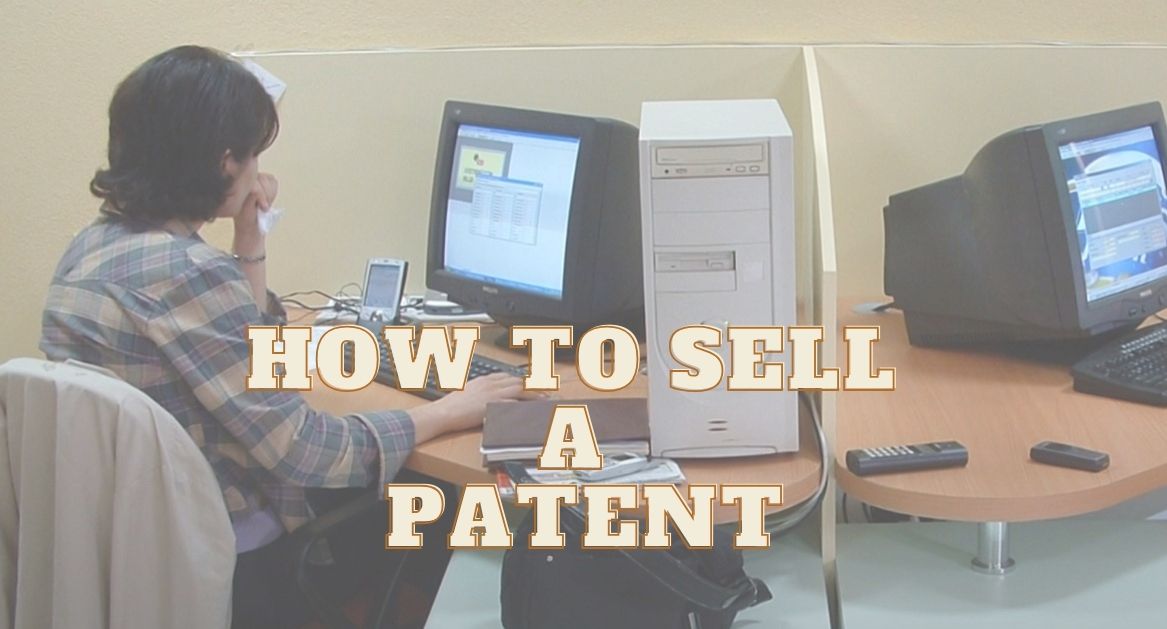Selling a patent can be a highly rewarding venture, but it requires strategic planning and a thorough understanding of the process. Whether you have invented something groundbreaking or hold a unique piece of intellectual property, knowing how to sell a patent effectively can ensure you maximize its value. In this comprehensive guide, we will explore the steps involved in selling a patent, from patent valuation and market research to negotiation terms and legal protection. Read on to discover how to navigate the intricate world of patent sales and secure the best possible deal for your intellectual property.
Understanding Patent Valuation
The first step in the patent sale process is to understand the value of your patent. Patent valuation involves assessing the potential market value of your invention. This can be done through:
- Market research: Analyze the current market trends and demands for similar inventions.
- Competitive analysis: Identify competitors and the value of their patents.
- Financial projections: Estimate future revenue streams that could be generated from the patent.
A well-researched valuation provides a solid foundation for negotiation terms and helps you understand the true worth of your intellectual property.
Preparing for the Sale
Before approaching potential buyers, it’s essential to prepare your patent for sale. This involves:
- Ensuring legal protection: Make sure your patent is fully registered and protected by law to prevent any infringement issues.
- Gathering documentation: Prepare all necessary documents, including the patent certificate, detailed descriptions, drawings, and any relevant research.
- Creating a compelling pitch: Develop a strong sales pitch that highlights the competitive advantage of your patent.

Finding Potential Buyers
Identifying and approaching the right buyers is crucial for a successful patent sale. Potential buyers may include:
- Big companies: Learn how to sell a patent to a big company by targeting industry leaders who can benefit from your invention.
- Patent brokers: Consider hiring a patent broker who specializes in selling patents and has connections with potential buyers.
- Venture capital firms: These firms are always looking for innovative technologies to invest in.
Conducting thorough market research can help you identify the best potential buyers for your patent.
Negotiation and Legal Agreements
Once you have interested buyers, the negotiation process begins. Key aspects to consider during negotiations include:
- Licensing agreement: Decide if you want to license your patent, allowing the buyer to use it while you retain ownership.
- Assignment agreement: This involves transferring ownership of the patent entirely to the buyer.
- Royalty payments: Determine if you will receive ongoing payments based on the buyer’s use of the patent.
- Transfer ownership: Ensure all legal documentation is prepared to transfer the patent ownership smoothly.
Having a clear understanding of these terms and involving a legal expert can protect your interests and ensure a fair deal.
Enforceability and Competitive Advantage
It’s important to demonstrate the enforceability of your patent, showing that it is legally defensible and can withstand challenges. Highlighting the competitive advantage of your patent can also make it more attractive to buyers, showcasing how it can benefit their business and give them an edge in the market.
Closing the Deal
The final step is closing the deal. This involves:
- Finalizing all agreements and ensuring both parties are satisfied with the terms.
- Completing the transfer of ownership through legal channels.
- Receiving payment as agreed upon in the negotiations.
A smooth and professional closing process leaves a positive impression and can pave the way for future opportunities.
Frequently Asked Questions
How do I determine the value of my patent?
Determining the value of a patent involves conducting thorough market research, analyzing competitive patents, and estimating the future revenue potential of the invention. It is recommended to seek professional assistance from patent valuation experts or brokers who can provide a detailed and accurate assessment.
What documents do I need to prepare before selling my patent?
Before selling your patent, you need to gather all relevant documentation, including the patent certificate, detailed descriptions and drawings, research data, and any prior sales or licensing agreements. Having a comprehensive and organized set of documents will facilitate a smoother sale process and provide confidence to potential buyers.
Can I sell my patent to a big company?
Yes, you can sell your patent to a big company. To do this, you should identify companies that could benefit from your invention and approach them with a compelling pitch. It might be beneficial to work with a patent broker who has connections with large corporations and can help you navigate the negotiation process.
What is the difference between a licensing agreement and an assignment agreement?
A licensing agreement allows you to retain ownership of the patent while granting the buyer the right to use it in exchange for royalty payments. An assignment agreement, on the other hand, involves transferring full ownership of the patent to the buyer. The choice between these agreements depends on your long-term goals and financial considerations.
How can I protect my interests during the patent sale process?
To protect your interests during the patent sale process, it is crucial to involve a legal expert specializing in intellectual property law. They can help draft and review contracts, ensure legal compliance, and safeguard your rights. Additionally, conducting thorough due diligence on potential buyers can help prevent future disputes and ensure a fair transaction.
Visitor Reviews
- John Smith I recently sold a patent for an innovative medical device, and the experience was both challenging and rewarding. The key to my success was conducting extensive market research to identify the right buyers. I also hired a patent broker who had invaluable connections in the medical industry. The negotiation process was intense, but with the help of my legal advisor, I secured a licensing agreement that included substantial royalty payments. This deal not only provided immediate financial relief but also ensured a steady income stream for years to come. I highly recommend seeking professional guidance to navigate this complex process effectively.
- Emma Johnson My journey of selling a patent for a software algorithm was a learning curve. Initially, I struggled with understanding the true value of my intellectual property. However, after consulting with a patent valuation expert, I gained clarity on my patent’s market potential. I decided to approach a venture capital firm that was known for investing in tech innovations. The firm was impressed with my pitch, and after several rounds of negotiations, we reached an assignment agreement. The whole process took a few months, but the outcome was worth it. The firm took over the development, and I received a lump sum that allowed me to invest in my next project.
- Michael Brown Selling my patent to a large automotive company was a remarkable experience. I had developed a unique engine component and knew that big car manufacturers would be interested. I conducted thorough market research and identified the top companies that could benefit from my invention. After a few pitches, one of the companies expressed interest. The negotiation phase was challenging, but with the assistance of my legal team, we secured an agreement that included a mix of upfront payment and future royalties. This deal not only rewarded my hard work but also opened doors for potential future collaborations.
- Olivia Davis I invented a new type of eco-friendly packaging and decided to sell the patent to a large corporation. The process was daunting at first, but hiring a patent broker made a significant difference. The broker had extensive experience and connections, which helped in identifying the right buyers quickly. We focused on companies with strong sustainability goals. After several meetings and negotiations, we finalized a licensing agreement. The legal protection was crucial to ensure my patent’s enforceability, and I was pleased with the royalty structure we agreed upon. This experience taught me the importance of professional support in the patent selling process.
- William Garcia When I decided to sell my patent for a biotech innovation, I knew I needed expert advice. The biotech field is highly competitive, and I wanted to ensure my invention was properly valued. I worked with a patent valuation expert and a legal advisor to prepare my patent for sale. After identifying potential buyers, I targeted a few leading biotech firms. The negotiation process was rigorous, but we eventually reached a fair assignment agreement. The buyer appreciated the competitive advantage my patent offered, and I was satisfied with the financial terms. This sale provided me with the capital to fund further research and development.
- Sophia Martinez Selling a patent for a consumer electronics product was an eye-opening experience. My invention had the potential to revolutionize a niche market, and I wanted to ensure it reached the right hands. I conducted detailed market research and identified potential buyers. I decided to go with a licensing agreement to retain some control over the use of my patent. The negotiation process was complex, involving multiple rounds of discussions. However, with a clear understanding of my patent’s value and strong legal protection, I secured a deal that included both upfront payments and royalties. This arrangement provided financial stability and allowed me to focus on developing new innovations.
Read also: How To Sell Replicas Legally
About Patent Selling Businesses
In the realm of patent sales, several institutions and businesses play a crucial role. Patent brokers, for example, specialize in connecting patent holders with potential buyers. These brokers have extensive networks and market knowledge, making them invaluable in the selling process. Additionally, legal firms that specialize in intellectual property law can provide essential services, ensuring that all legal aspects of the sale are handled correctly and efficiently.
Venture capital firms are also significant players in the patent market. These firms are constantly on the lookout for innovative patents that can be developed into profitable ventures. By providing the necessary funding and resources, they help bring groundbreaking inventions to market, benefiting both the inventor and the investors.
Furthermore, large corporations often have dedicated teams for acquiring patents. These teams are responsible for identifying patents that align with the company’s strategic goals and negotiating purchases. By acquiring valuable patents, companies can enhance their product offerings, enter new markets, and maintain a competitive edge.
In conclusion, selling a patent involves careful preparation, strategic negotiation, and a thorough understanding of the market. By following these steps and leveraging the expertise of professionals, you can successfully navigate the patent sale process and achieve the best possible outcome for your invention. Whether you aim to license your patent, transfer ownership, or receive royalty payments, a well-executed sale can provide significant financial rewards and open doors to new opportunities.

Leave a Reply